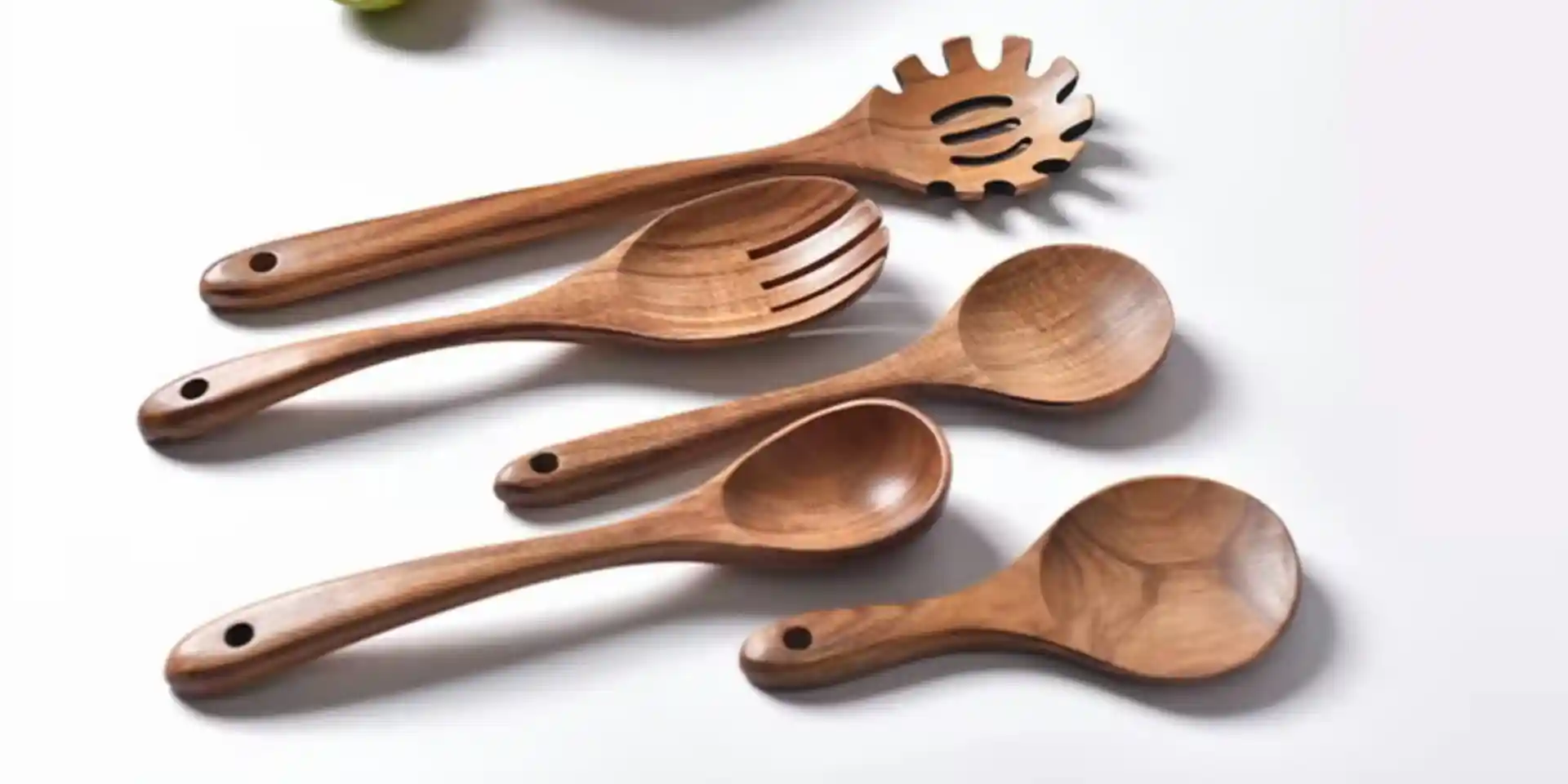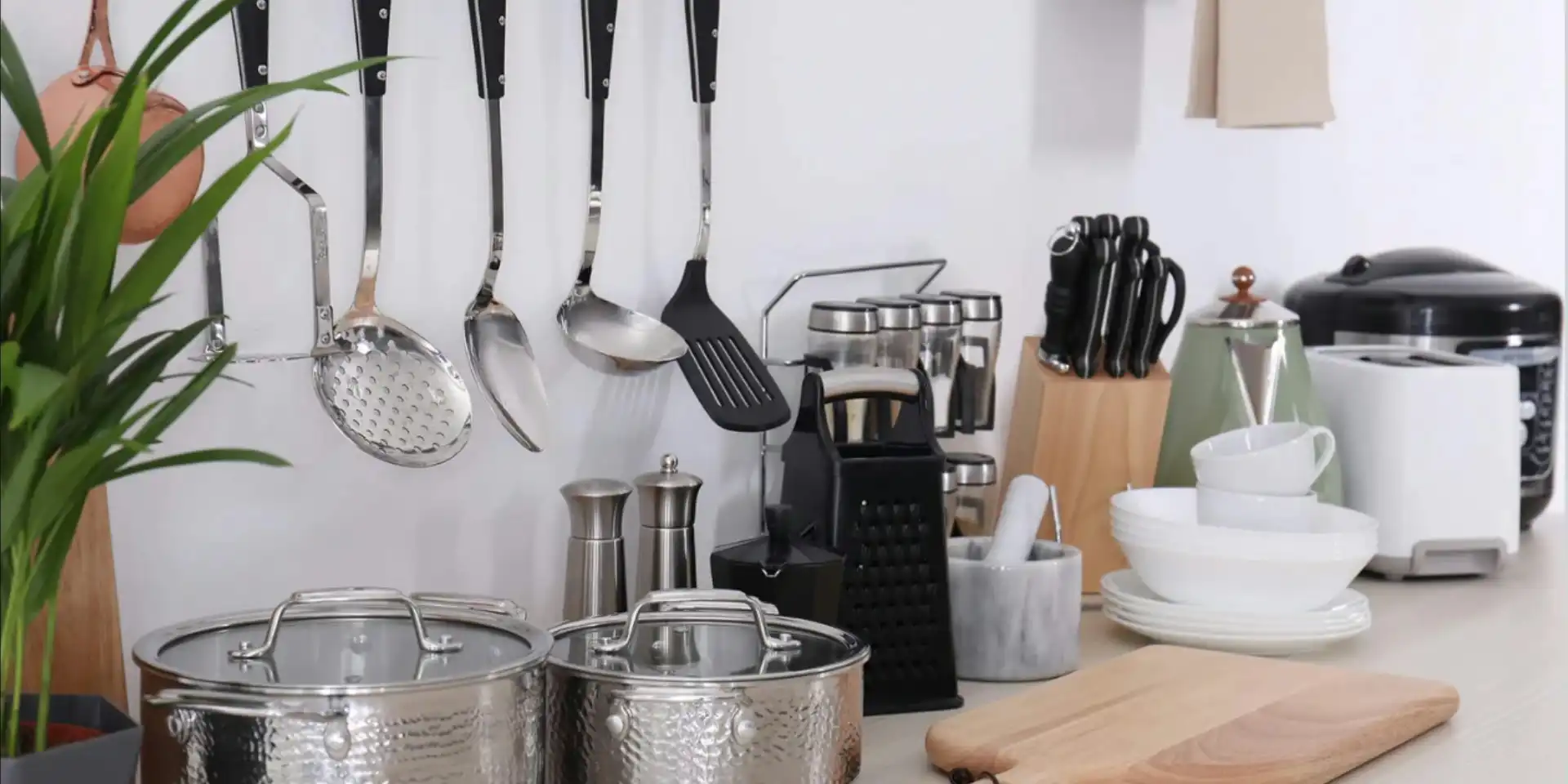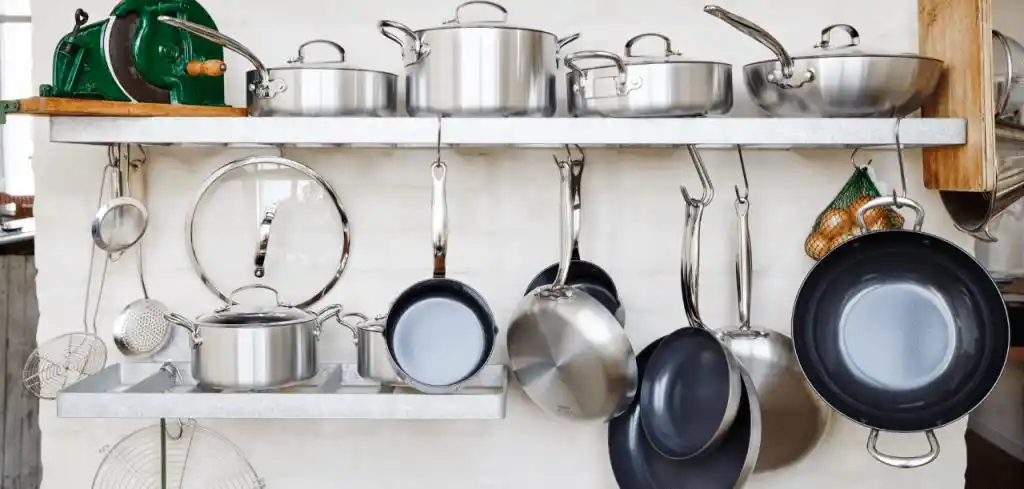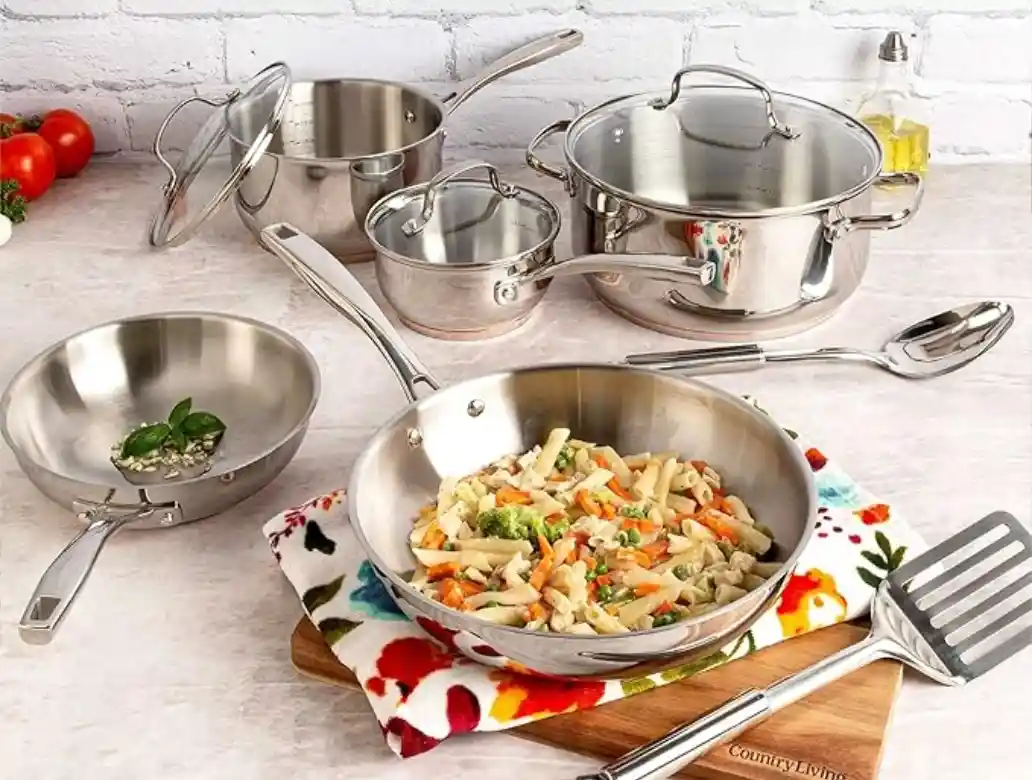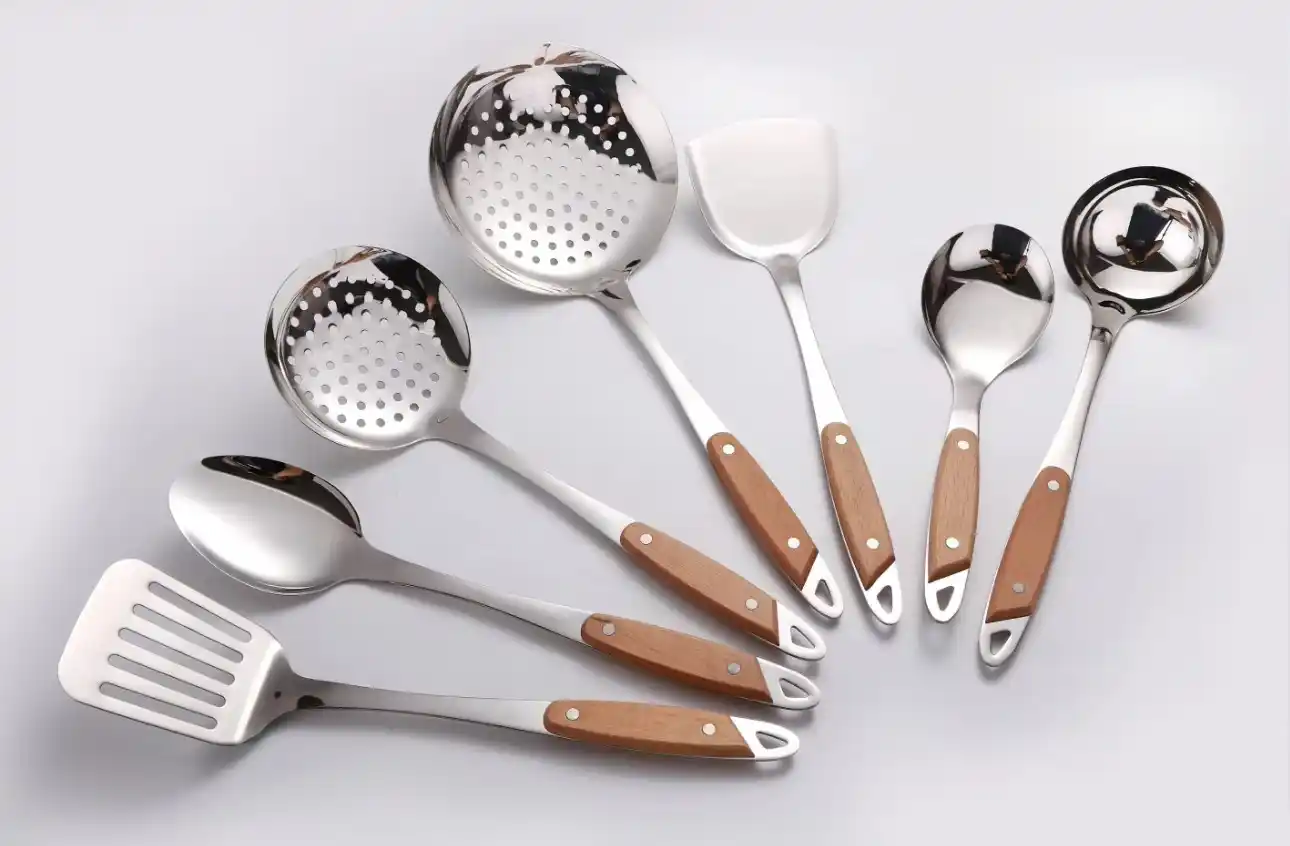Are Wooden Utensils Good for Cooking?
Wooden utensils, in particular, have been a staple in kitchens for centuries, cherished for their aesthetic appeal and functional benefits. But in recent years, they’ve faced stiff competition from their modern counterparts—stainless steel, silicone, and plastic. The debate between wooden and other utensils has long been a topic of discussion today. So, are wooden utensils still a good choice for cooking? Let’s explore everything you need to know about wooden utensils in this post and help you decide whether they should have a place in your culinary arsenal.
What Are Wooden Utensils?
Wooden utensils are kitchen tools crafted from wood and used for various cooking and baking tasks. They include spoons, spatulas, ladles, tongs, and more. The appeal of wooden utensils lies in their natural, timeless quality, which complements both rustic and modern kitchens. Unlike their metal or plastic counterparts, wooden utensils offer a unique tactile experience and often become cherished kitchen essentials.
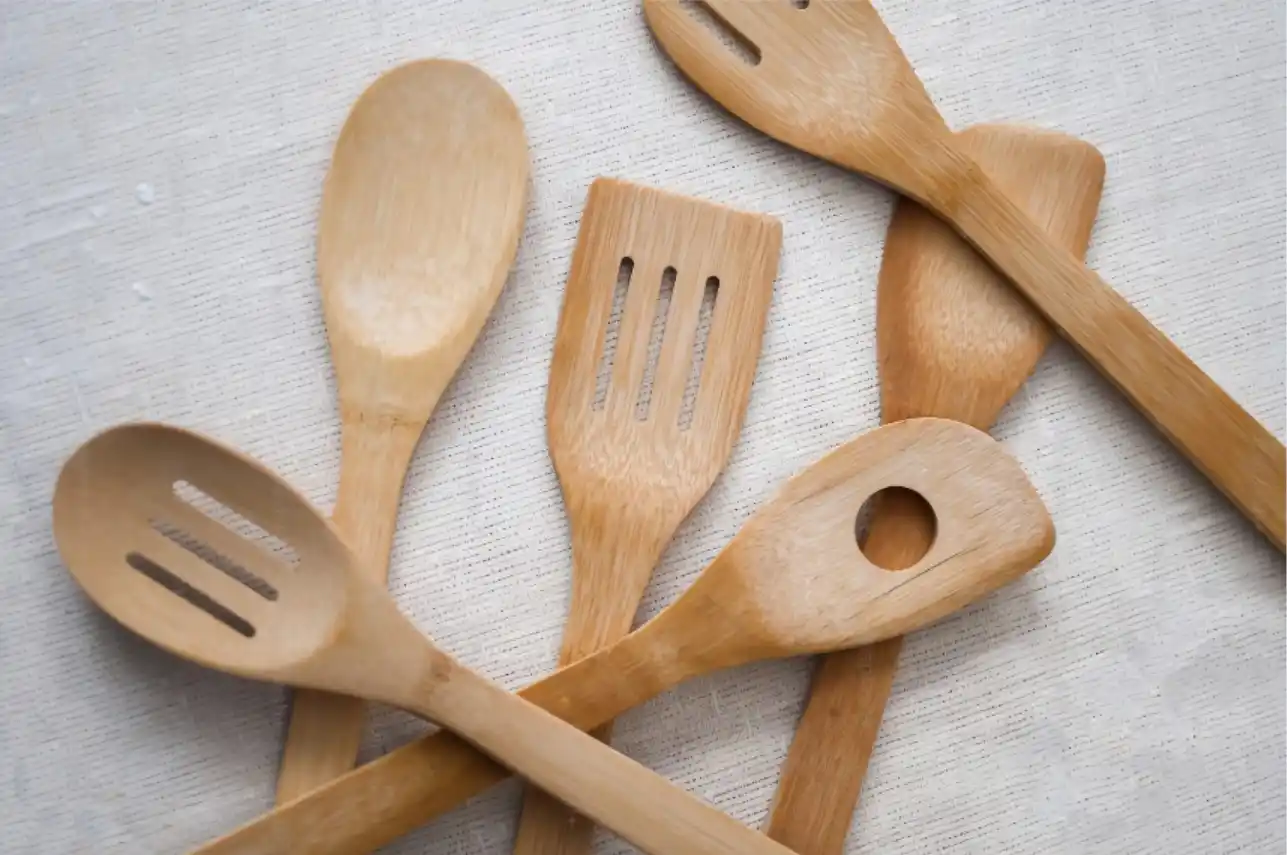
Types of Wood Used for Utensils
Different types of wood are used to craft kitchen utensils, each offering unique characteristics. Some of the most popular woods include:
1. Maple
Known for its durability and resistance to abrasion, maple is a hard wood that can withstand frequent use without showing signs of wear. Its fine grain and smooth surface make it a favorite for high-quality utensils.
2. Cherry
Cherry wood is renowned for its rich color and smooth texture. It darkens beautifully over time, developing a deep, warm patina that adds to its aesthetic appeal. Cherry is also a dense wood, making it sturdy and long-lasting.
3. Walnut
Walnut is a premium wood often chosen for its striking appearance and strength. Its dark, elegant finish adds a touch of sophistication to any kitchen. Walnut is also less porous, which helps in preventing bacteria buildup.
4. Olive Wood
Olive wood is known for its unique grain patterns and rich, golden hue. It is a dense, hardwood with natural antibacterial properties, making it an excellent choice for utensils that will come into contact with food.
5. Teak
Teak is a tropical hardwood that is highly resistant to moisture and insects. Its natural oils make it a great choice for utensils that will be exposed to water regularly. Teak’s durability and resistance to warping make it a practical option for kitchen tools.
6. Beechwood
Beechwood is another common choice for kitchen utensils. It is strong and resistant to wear and tear, making it suitable for heavy-duty use. Beechwood has a light color and smooth texture, which can blend well with various kitchen styles.


Timeless Appeal of Wooden Utensils for Cooking
Wooden utensils have been a fundamental part of cooking for generations. Their enduring popularity isn’t just a matter of tradition; there are several compelling reasons why they continue to be a favorite among both professional chefs and home cooks.
1. Gentle on Cookware
One of the primary benefits of wooden utensils is their non-abrasive nature. Unlike metal utensils, which can scratch and damage non-stick or enamel-coated cookware, wooden spoons, spatulas, and turners are gentle on your pots and pans. This quality is especially important when working with non-stick surfaces or delicate cookware, as it helps preserve the integrity of your kitchen tools and ensures your cookware lasts longer.
2. Heat Resistance
Wooden utensils are generally more heat-resistant compared to plastic utensils, which can melt or warp under high temperatures. While it’s still advisable to avoid exposing wooden utensils to extreme heat directly, they are less likely to become deformed or release harmful chemicals when exposed to heat compared to plastic alternatives.
3. Antibacterial Properties
Wooden utensils have natural antibacterial properties that contain substances that inhibit the growth of bacteria. Studies have shown that wooden surfaces are less likely to harbor bacteria compared to plastic surfaces, which can develop grooves that trap bacteria. The natural composition of wood helps to resist bacterial growth, making wooden utensils a hygienic choice for your kitchen.
4. Inertness
Wooden utensils do not react with acidic foods, which can alter the taste and quality of your dishes. This inertness ensures that the flavors of your ingredients remain pure, contributing to better-tasting meals. Additionally, they don’t leach harmful chemicals or toxins, making them a safer choice for those with allergies or sensitivities to certain materials.
5. Natural Insulation
Wood has natural insulating properties, which means it doesn’t conduct heat as efficiently as metal. This feature can help prevent burns or heat-related injuries while cooking, as the handle of a wooden spoon remains cooler to the touch compared to a metal or plastic one.
6. Sustainability
In an era where sustainability is increasingly important, wooden utensils stand out as an eco-friendly choice. Unlike plastic utensils, which contribute to environmental pollution and are often not recyclable, wooden utensils are biodegradable and come from a renewable resource. By choosing wooden utensils, you’re making a more environmentally responsible decision that reduces your ecological footprint.
7. Easy Cleanness in Daily
Wooden utensils are relatively easy to clean. Most high-quality wooden utensils are treated with mineral oil, which helps to form a protective barrier on the surface. This oil treatment creates an inert, neutral surface that resists staining and odors. The smooth finish of well-maintained wooden utensils ensures that they do not retain food particles or bacteria, making them easy to keep clean.
8. Aesthetic Appeal
Wooden utensils bring a classic, rustic charm to the kitchen. Their natural beauty and warmth can enhance the visual appeal of your kitchen and create a welcoming atmosphere. Many people appreciate the craftsmanship involved in wooden utensil production and enjoy the unique grain patterns and textures of different types of wood.
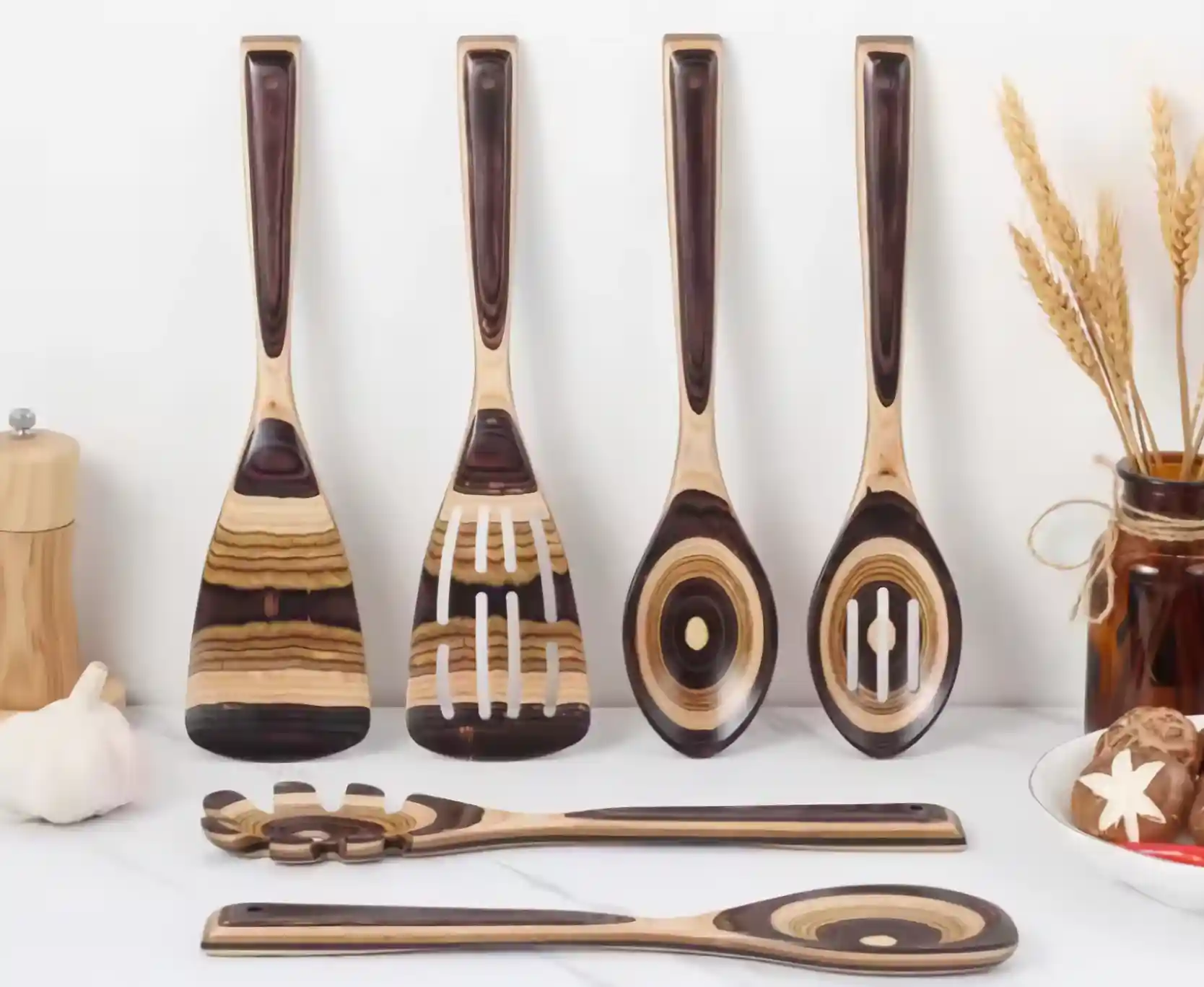
Potential Drawbacks of Wooden Utensils
While wooden utensils have many advantages, they also come with some potential drawbacks that are worth considering. Understanding these limitations can help you make an informed decision about whether they are the right choice for your kitchen.
1. Maintenance and Care
Wooden utensils require regular maintenance to keep them in good condition. They should be hand-washed with mild soap and warm water, avoiding prolonged exposure to water or submersion, as this can lead to warping or splitting. After washing, it’s important to dry them thoroughly to prevent moisture from causing damage. Additionally, wooden utensils should be periodically oiled with food-grade mineral oil to maintain their luster and prevent cracking.
2. Staining and Absorption
Wood is a porous material, which means it can absorb flavors, colors, and odors from the foods you cook. While this might not be a significant issue for most users, it can lead to staining or unwanted odors over time. Regular cleaning and proper care can help mitigate these effects, but it’s something to keep in mind if you frequently cook with strongly flavored or colored ingredients.
3. Durability
Compared to some modern materials, wooden utensils may not be as durable or long-lasting. They can be prone to cracking or splintering, especially if not properly maintained. While high-quality wooden utensils can last for years, they might not be as robust as stainless steel or silicone options in some cases.
4. Hygiene Concerns
There is a common concern that wooden utensils can harbor bacteria, particularly if they are not cleaned properly. However, proper cleaning and drying techniques can minimize this risk. Wooden utensils should be washed promptly after use, dried thoroughly, and periodically sanitized to ensure they remain hygienic.
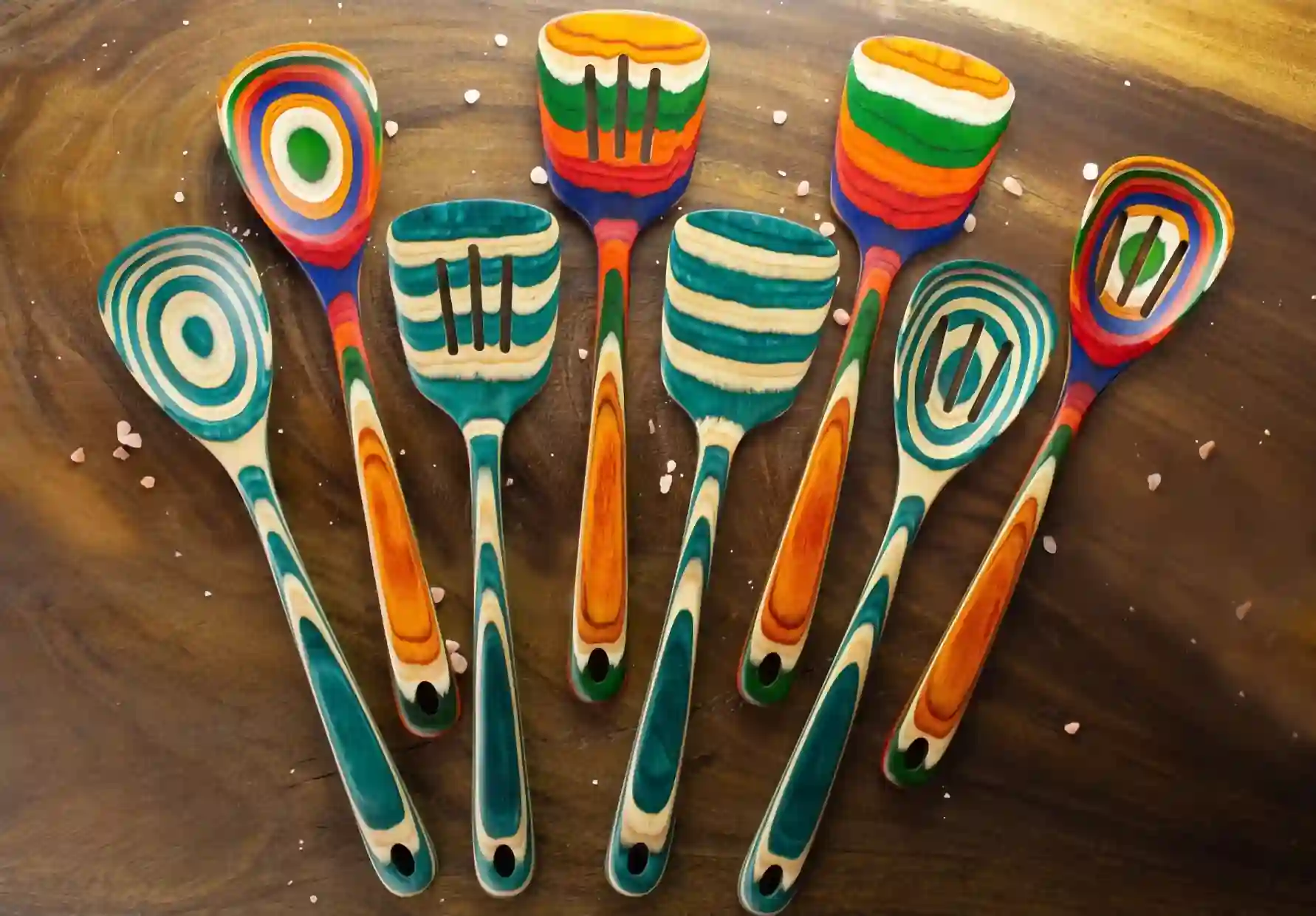
Tips for Maintaining Wooden Utensils
Proper maintenance is key to extending the lifespan of your wooden utensils. Here are some tips to help you keep them in excellent condition:
1. Hand Wash Only
Avoid putting wooden utensils in the dishwasher, as the high heat and prolonged exposure to water can cause warping and splitting. Instead, wash them by hand with mild soap and warm water. Use a soft sponge or brush to remove food particles, and avoid abrasive scrubbers that can damage the wood.
2. Dry Immediately
After washing, dry your wooden utensils immediately with a clean towel. Avoid letting them air dry, as this can lead to the wood becoming overly dry and prone to damage. Ensure that they are completely dry before storing them to prevent moisture-related damage.
3. Oil Regularly
Apply food-grade mineral oil or a specialized wood conditioner to your wooden utensils regularly to keep the wood moisturized and prevent it from cracking. This oil treatment helps to maintain the wood’s natural beauty and protect it from stains and odors.
4. Avoid Harsh Chemicals
Steer clear of using harsh cleaning agents or abrasive scrubbers on your wooden utensils. These can damage the wood and compromise its integrity. Instead, use a soft sponge or cloth for cleaning.
5. Store Properly
Store your wooden utensils in a dry, well-ventilated area to prevent moisture buildup. Avoid placing them in direct sunlight or near heat sources, as this can cause the wood to dry out or become brittle.
Click here for more tips on how to store your kitchen utensils.
6. Inspect for Damage
Regularly check your wooden utensils for signs of damage, such as cracks, splinters, or loose handles. Address any issues promptly to prevent further deterioration.
Frequently Asked Questions
Conclusion
Wooden utensils have stood the test of time for good reason. Their gentle nature on cookware, heat resistance, natural antimicrobial properties, inertness, sustainability, and aesthetic appeal make them a valuable addition to any kitchen. However, they do require proper maintenance and care to ensure their longevity and performance.
Ultimately, whether wooden utensils are good for cooking depends on your personal preferences and cooking needs. If you appreciate the traditional craftsmanship and natural beauty of wood, and you’re willing to invest the time and effort required for maintenance, wooden utensils can be a fantastic choice. However, if you prefer low-maintenance options or need utensils with specific features, modern alternatives might be more suitable. For example, stainless steel is durable, easy to clean, and resistant to bacteria, making it a practical choice for daily use.
The superior option is to combine these two elements: the elegance of wood and the durability of stainless steel. Stainless steel cooking utensils with wooden handles exemplify this blend. You can check out this excellent collection at SHUANGYI. These tools are the perfect blend of durability, style, and practicality.

